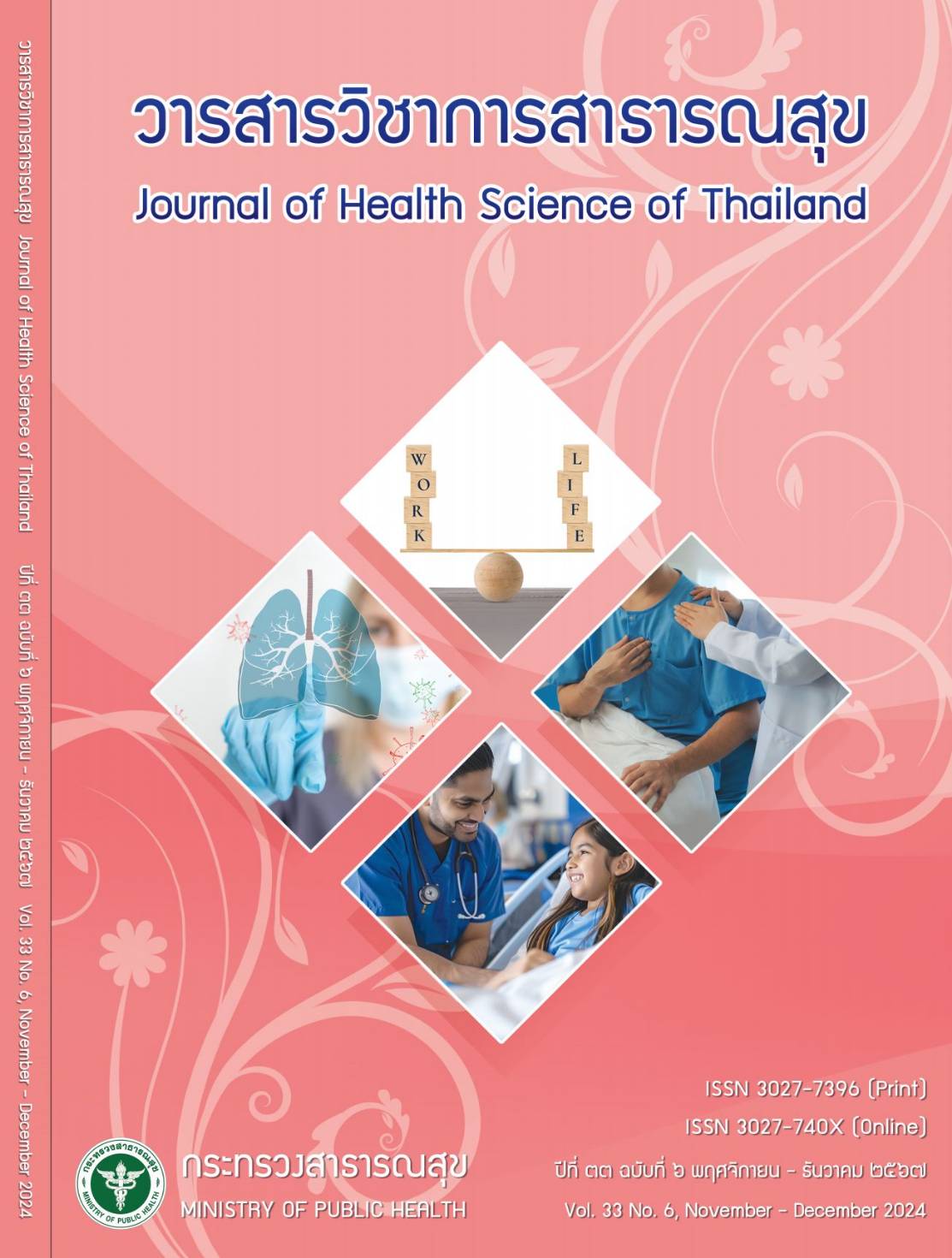Comparison of the Effects of Stroke Patient Rehabilitation Process on the Knowledge of Daily Activities Performance among Patients and Caregivers, Community Hospitals, Nakhon Si Thammarat Province
Keywords:
activity of daily living, knowledge, stroke, rehabilitation processAbstract
This quasi-experimental research aimed to compare the knowledge of daily activity performance
among the first diagnosed stroke patients who required continuous physical rehabilitation after the acute
phase and their caregivers in Cha-uat Hospital and Chian Yai Hospital, Nakhon Si Thammarat province.
The measurements were taken before and after undergoing the physical rehabilitation process. A sample
group was selected using simple random sampling, divided into experimental and control groups; each
consisting of 40 pairs. The experimental group received a rehabilitation program based on the Fisher
and Fisher’s concept of providing information, motivation, and behavioral skills, 2003 over a period of
12 weeks. The control group obtained regular physical rehabilitation activity. The research instruments
included: (1) personal data questionnaire, (2) questionnaire about the knowledge of daily routines of
stroke patients, and (3) program aimed at promoting stroke patients and caregivers to practice daily
routines. Fisher’s exact test, independent t-test, Wilcoxon signed-rank test, and Wilcoxon rank-sum
(Mann-Whitney) test were used to analyzed the data. It was found that experimental group had
significantly higher average scores and differences in average scores of knowledge of daily activities compared
to control group, with statistical significance at the 0.05 level. However, there was no significant
difference in knowledge scores of daily activities between the caregivers of both groups Therefore, the process
of physical rehabilitation based on the concept of providing information, motivation, and behavioral
skills, which includes educating patients specifically about activities that have not yet met their goals and
are appropriate to their context, should involve interactive one-on-one conversations, discussions, and
empowering counseling. This approach would enhance stroke patients the knowledge about their daily
routines, leading to greater independence in performing daily activities and reducing the possibility of
disability. control group received standard rehabilitation guidelines from the Ministry of Public Health. The duration was 12 weeks, participating in activities once a week and measuring outcomes before and after the experiment using a questionnaire assessing knowledge of daily activities. Data analysis utilized Fisher's exact test, Independent t-test, Wilcoxon signed-rank test, and Wilcoxon rank-sum (Mann-Whitney) test. The study found that the experimental group of patients had significantly higher average scores and differences in average scores of knowledge about daily activities compared to the control group, with statistical significance at the 0.001 level. However, there was no significant difference in knowledge scores about daily activities between the caregivers of both groups at the 0.05 level. In conclusion, the rehabilitation process based on information provision, motivation, and behavioral skills increased the knowledge about daily activities of stroke patients. The results of this study can be applied to benefit other patients with cerebrovascular disease by imparting knowledge about tailored daily activity training. Such training should concentrate on activities that patients have not yet attained and are suitable for their individual circumstances. The delivery of information should involve face-to-face communication, interaction, discourse, and counseling to empower both patients and their family caregivers to independently undertake daily activities, thereby reducing the risk of disability and alleviating the caregiving burden.
Keywords: activity of daily living; knowledge; stroke; rehabilitation process
Downloads
Downloads
Published
How to Cite
Issue
Section
License
Copyright (c) 2024 Ministry of Public Health

This work is licensed under a Creative Commons Attribution-NonCommercial-NoDerivatives 4.0 International License.







